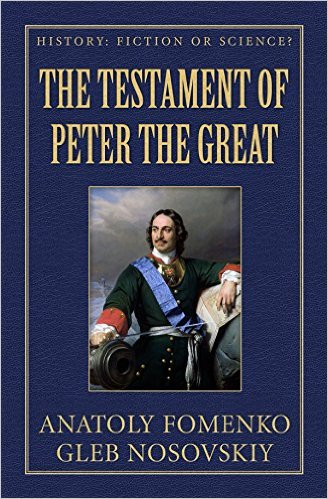
After reading History: Fiction or Science? you will develop a more critical attitude to the dominating historical discourse or even become its antagonist.You will be confronted with natural disbelief when you share what you’ve learned with others. Now you are very well armed in face of inevitable scepticism. This book contains enough solid evidence to silence any historian by the sheer power of facts and argumentation.
History: Fiction or Science? is the most explosive tractate on history ever written – however, every theory it contains, no matter how unorthodox, is backed by solid scientific data.
The dominating historical discourse in its current state was essentially crafted in the XVI century from a rather contradictory jumble of sources such as innumerable copies of ancient Latin and Greek manuscripts whose originals had vanished in the Dark Ages and the allegedly irrefutable proof offered by late mediaeval astronomers, resting upon the power of ecclesial authorities. Nearly all of its components are blatantly untrue!
For some of us, it shall possibly be quite disturbing to see the magnificent edifice of classical history to turn into an ominous simulacrum brooding over the snake pit of mediaeval politics. Twice so, in fact: the first seeing the legendary millenarian dust on the ancient marble turn into a mere layer of dirt – one that meticulous unprejudiced research can eventually remove.The second, and greater, attack of unease comes with the awareness of just how many areas of human knowledge still trust the elephants, turtles and whales of the consensual chronology to support them. Nothing can remedy that except for an individual chronological revolution happening in the minds of a large enough number of people.
Dr Fomenko et al as scientists are ready to recognize the alleged mistakes of New Chronology, to repent and to retract if and only if:
- radiocarbon dating methods or dendrochronology pass the black box' tests;
- astronomy refutes their results on eclipses;
- Robert Newton (US astrophisist) was wrong accusing Ptolemy of swindle.
At present historians are not willing to perform. The radiocarbon dating labs run their very costly tests only if is the sample to be dated is accompanied with an idea of age pronounced by historians on basis of...subjective..mmm...gutfeeling and the history books they have been writing for the last 400 years. Radiocarbon labs politely bill for their fiddling and finetuning with C14 to get the dates 'to order' of historians. Circulus vitiosus is perfect.